
Refereed journal publications
No Surprises, Please: Voting Costs and Electoral Turnout
with Jean-Victor AlipourJournal of Political Economy Microeconomics (2025), Vol. 3:1, 59-97. (publication)
final version here (CESifo Working Paper)
replication package here
nominated for the Elinor and Vincent Ostrom Prize at the Public Choice Society Meeting 2022
selected for a press briefing at the Royal Economic Society Annual Conference 2022
policy report (in English)
policy report (in German)
Abstract
Can well-intentioned policies create barriers to voting? Election administrators in Munich (Germany) recruit new polling places and control precinct sizes to improve voting accessibility, creating variation in the assignment of citizens to polling locations. Event study estimates suggest that polling place reassignments cause a persistent shift from in-person to mail-in voting and a transitory drop in total turnout of 0.4 percentage points (0.6 percent). The results are consistent with inattention to reassignments, causing some voters to miss requesting mail-in ballots and temporarily abstain from voting. Reassignments depress turnout more in elderly-heavy precincts and when distance to the polling location increases.
JEL-Codes: D72, D73, D83, R41
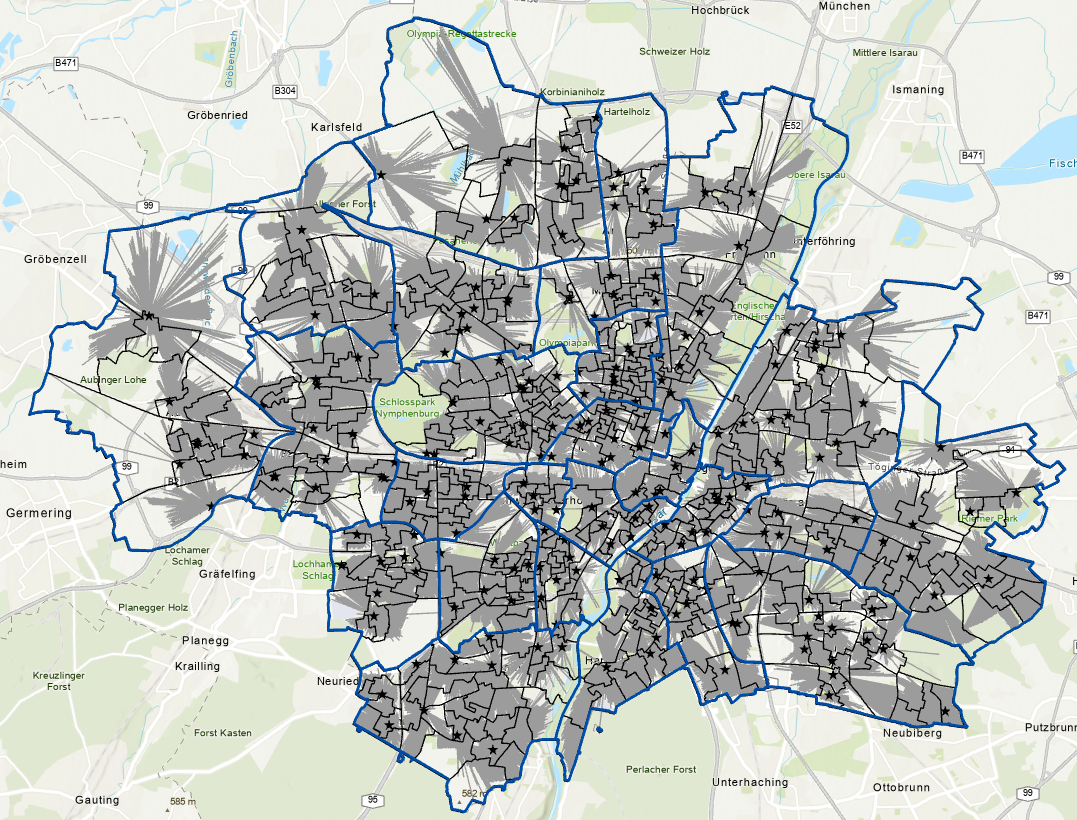
The Impact of China’s “Stadium Diplomacy” on Local Economic Development in Sub-Saharan Africa
with Gustav PirichWorld Development (2025), Vol. 185, 106765. (publication)
CESifo Working Paper
Abstract
This study investigates the economic impact of China’s “stadium diplomacy” in Sub-Saharan Africa. Exploiting the staggered timing of the construction in a difference-in-differences framework, we analyze the effect of Chinese-built and financed stadiums on local economic development. Employing nighttime light satellite data, we provide both an aggregate and spatially disaggregated assessment of these investments. We find that a stadium's city nighttime light intensity increases by about 24 percent, on average, after stadium completion. The effects can be attributed to the stadiums but are not only visible close to the stadium's location. Estimates on nighttime light activity are mirrored by individual-level employment effects in the stadiums’ surrounding area. For stadiums not built or financed by China, we cannot find similar effects. Our results contrast with the widely held notion that China’s development finance projects constitute “white elephants”.
JEL-Codes: O18, R11, O55, R53, Z20
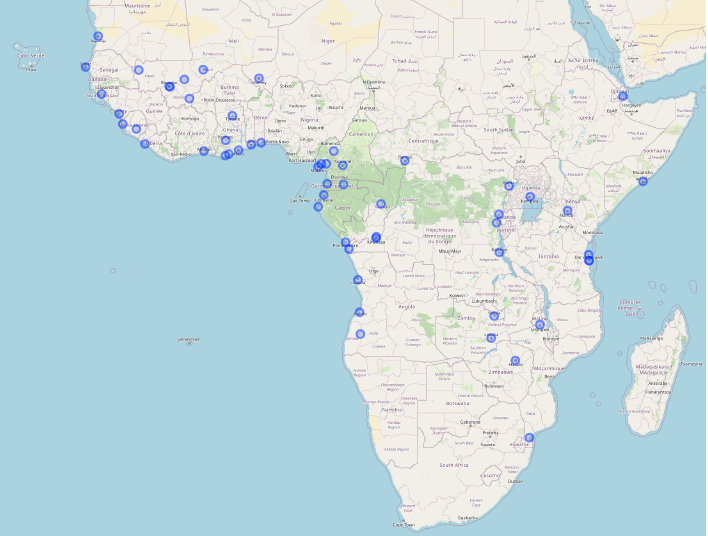
Mobile Money and Financial Inclusion in Sub-Saharan Africa
with Lukasz Grzybowski and Onkokame MothobiInformation Economics and Policy (2023), Vol. 65. (publication)
FIT IN Initiative Working Paper
policy report
Abstract
In this paper, we utilize survey data collected in 2017 from 12,735 individuals across nine Sub-Saharan African countries. We merge the survey data with geographic information related to the proximity of mobile network towers and banking facilities, based on the geo-locations of the respondents. Our estimation approach comprises a two-stage model. In the first stage, consumers make choices between adopting a feature phone or a smartphone. In the second stage, they make decisions regarding the use of mobile money services. Our findings reveal that network coverage significantly influences the adoption of mobile phones. Moreover, we observe that mobile money services are more favored by younger and relatively wealthier individuals for sending money, while older individuals and those with lower incomes tend to use mobile wallets for receiving money. Consequently, mobile money services facilitate younger migrant workers residing in areas with better infrastructure in providing support to their older relatives in less developed regions.
JEL-Codes: O12, O16, O18, O33, L86, L96
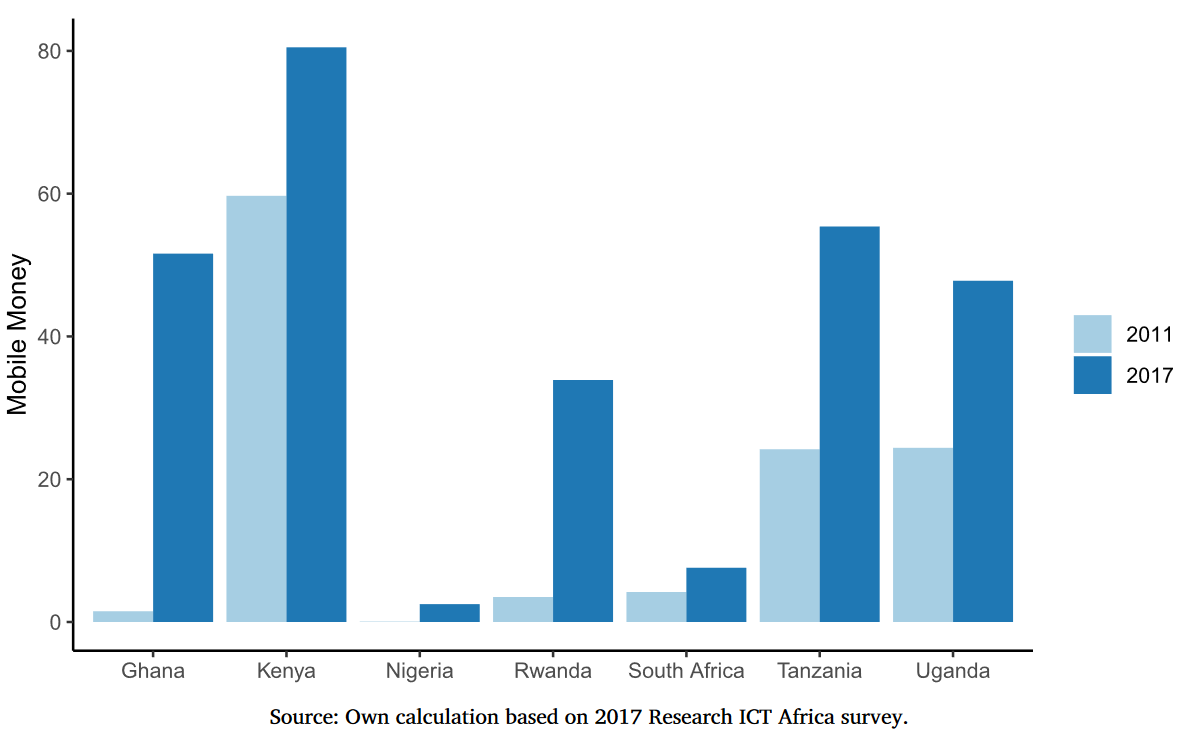
Interoperability between Mobile Money Agents and Choice of Network Operators: The Case of Tanzania
with Lukasz Grzybowski and Onkokame MothobiReview of Network Economics (2023), Vol. 22:1, 27-52. (publication)
FIT IN Initiative Working Paper
Abstract
In this paper, we investigate the effects of non-exclusive agreements between networks of mobile money agents on mobile network operator choices, using survey data from Tanzania conducted in 2017. By combining survey responses with geo-location data and information on agent proximity, we employ discrete choice models to analyze consumers’ decisions in subscribing to mobile network operators and their corresponding mobile money providers. Our findings highlight the significant influence of the distance to mobile money agents on consumers’ subscription choices. To explore the impact of interoperability (non-exclusivity) at the mobile money agent level, where consumers can use the nearest agent from any mobile money provider, we assess its effects on market shares of mobile network operators. Our results indicate that interoperability at the agent level has only a minor impact on market shares. Smaller operators experience marginal gains as their consumers can now utilize agents of larger providers, which are often closer in proximity. In conclusion, we find that interoperability at the agent level does not considerably alter the market structure in the context Tanzania during the period under consideration.
JEL-Codes: O16, O18,O33, L86, L96

New Region, New Chances: Does Moving Regionally for University Shape Later Job Mobility?
with Felix Ehrenfried and Thomas FacklerRegional Studies (2023), Vol 57:7, 1239-1253. (publication)
CESifo Working Paper
policy report (in German)
media coverage
Abstract
Efficient local labour markets feature welfare and higher wages. For this efficiency, regional mobility is an essential factor. We find that high school graduates who move to another labour market region (LMR) when enrolling at a university, are also more likely to move to a third LMR when entering the job market. We take a subset of university graduates who went to high school in an agglomeration's suburbs. To take endogeneity in the decision to move into account, we use distance to university as an instrument. Experiencing a change in the residential region is a chance to induce regional mobility.
JEL-Codes: J61, R23, I23
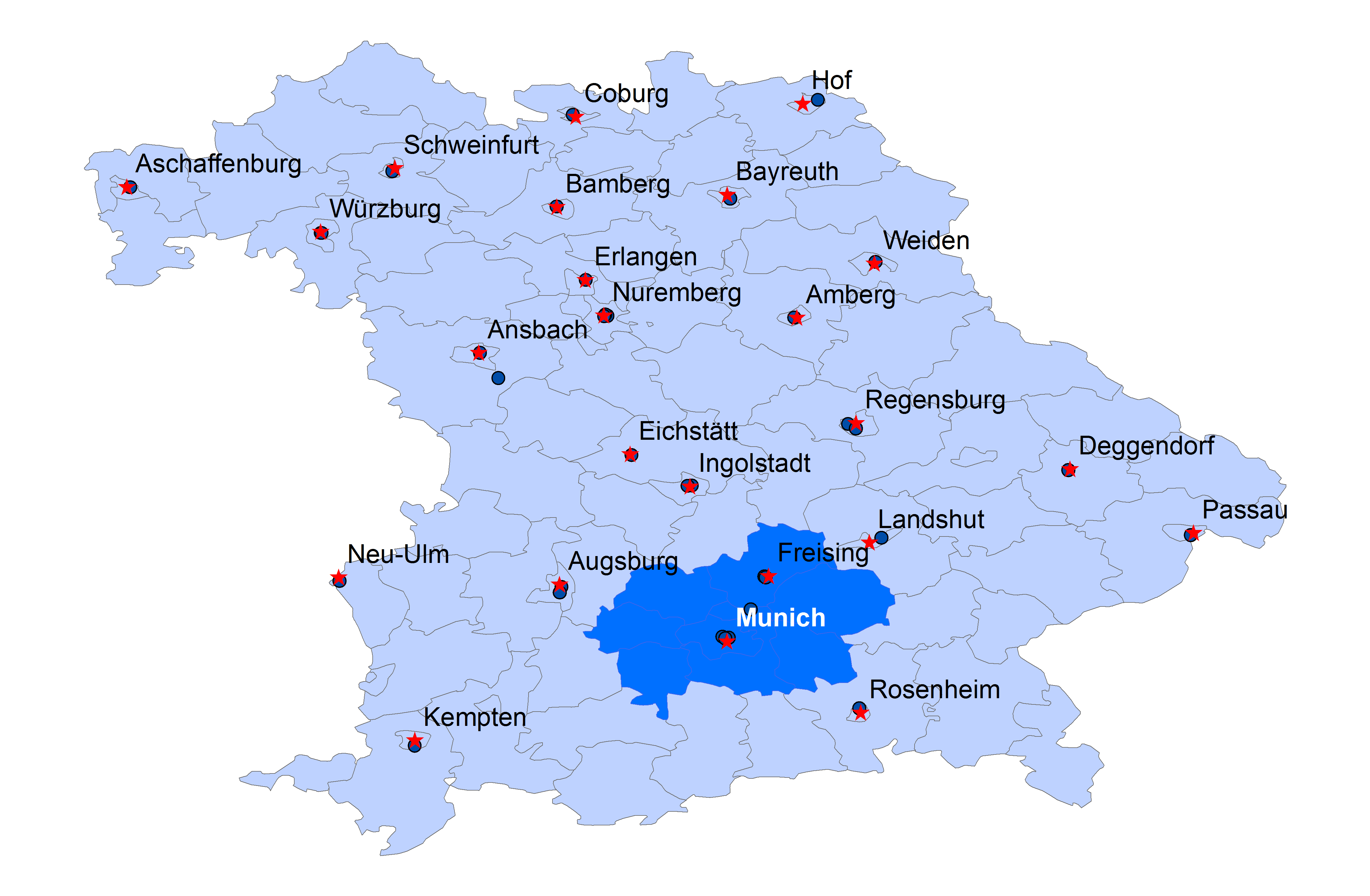
Is High-Speed Internet an Infrastructure of General Interest?
Information Economics and Policy (2021), Vol. 56. (publication)Abstract
Although the recent years have witnessed a stark increase in the availability of high-speed Internet, adoption rates remain low. One potential explanation is that for most users high-speed Internet does not increase their utility. Using a mixed logit discrete choice model, this paper analyzes whether high-speed and basic Internet are substitutes. I find that they are not. Users who do not need higher speeds, choose basic speeds regardless of high-speed availability. Therefore, high-speed Internet is not an infrastructure of general interest. Consequently, policy-makers cannot increase usage of high-speed Internet by solely fostering its rollout.
JEL-Codes: L96, L13, L51
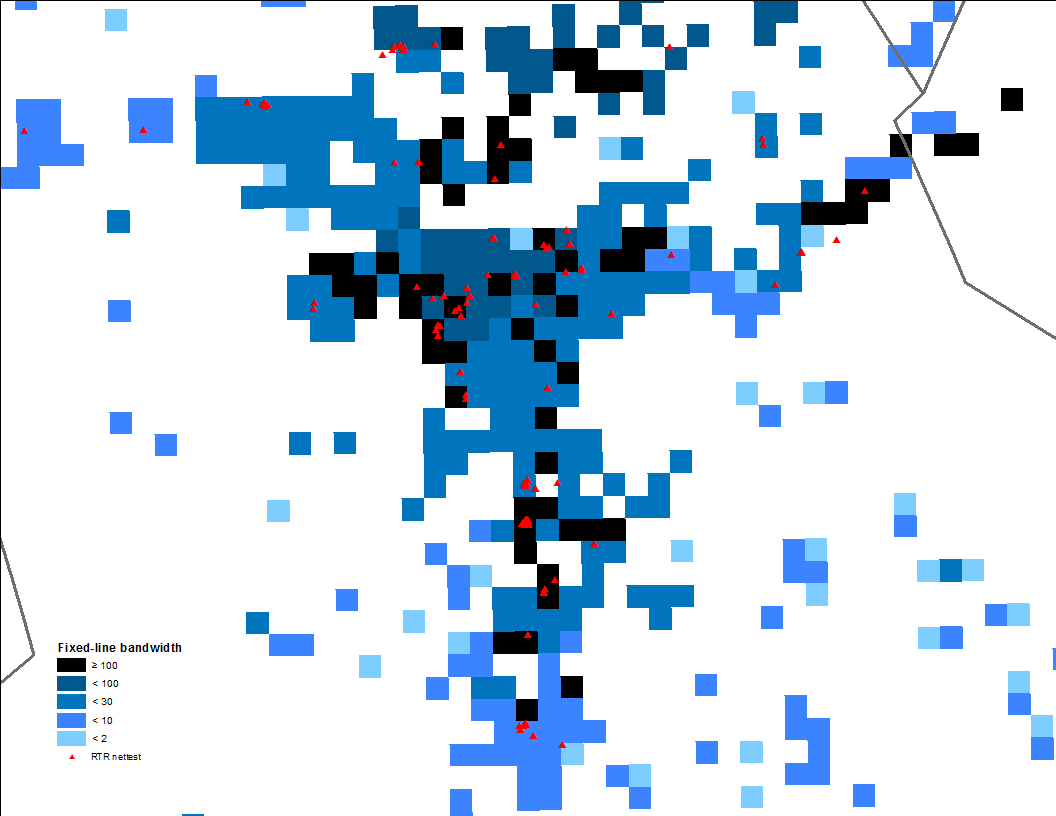
Further publications (partly in German)
How Well-Intentioned Measures Have Unintended Consequences for Election Turnout
-
with Jean-Victor Alipour
published in EconPol Forum 25 (4), 45-48 (publication)
Wahllokal-Neuzuteilung beeinflusst Wahlbeteiligung
-
with Jean-Victor Alipour
published in ifo Schnelldienst digital, 2024, 5, No. 5, 01-04 (publication)
How Can Phones Improve Financial Inclusion?
-
with Lukasz Grzybowski and Onkokame Mothobi
FIT IN Initiative Policy Papers, February, 2024 (publication)
Abgehängte Ältere? Wie ältere Arbeitskräfte am modernen Arbeitsmarkt teilhaben können
-
with Oliver Falck and Simon Wiederhold
published in ifo Schnelldienst, 2023, 76, No. 11, 03-32 (publication)
Mit der Nacht den Tag erklären
-
with Astrid Probst
published in Science Notes (10), 20-33 (publication)
Elderly Left Behind? How Older Workers Can Participate in the Modern Labor Market
-
with Oliver Falck and Simon Wiederhold
published in EconPol Forum 23 (5), 16-19 (publication)
Wie lässt sich die Mobilität von Hochschulabsolvent*innen auf dem Arbeitsmarkt erhöhen?
-
with Thomas Fackler
published in ifo Schnelldienst, 2022, 75, No. 10, 58-61 (publication)
Konnte mobile Internetinfrastruktur die regionale Konnektivitätslücke in Deutschland abmildern?
-
with Moritz Goldbeck, Anika Lange, and Svenja Schwarz
bidt blog, Digitaler Wettbewerb (14. Juni 2022) (publication)
Funkloch Deutschland? Der Ausbau der mobilen Datennetze in den letzten zehn Jahren
-
with Moritz Goldbeck and Svenja Schwarz
published in ifo Schnelldienst, 2021, 74, No. 11, 29-33 (publication)
Ist Deutschland abgeschlagen im Rennen um 5G?
with Oliver Falckpublished in ifo Schnelldienst, 2019, 72, No. 21, 03-14 (publication)
Digitalisierung in deutschen Unternehmen: Eine Bestandsaufnahme
with Alexandra Heimisch and Julia Schrickerpublished in ifo Schnelldienst, 2017, 70, No. 21, 38-40 (publication)

